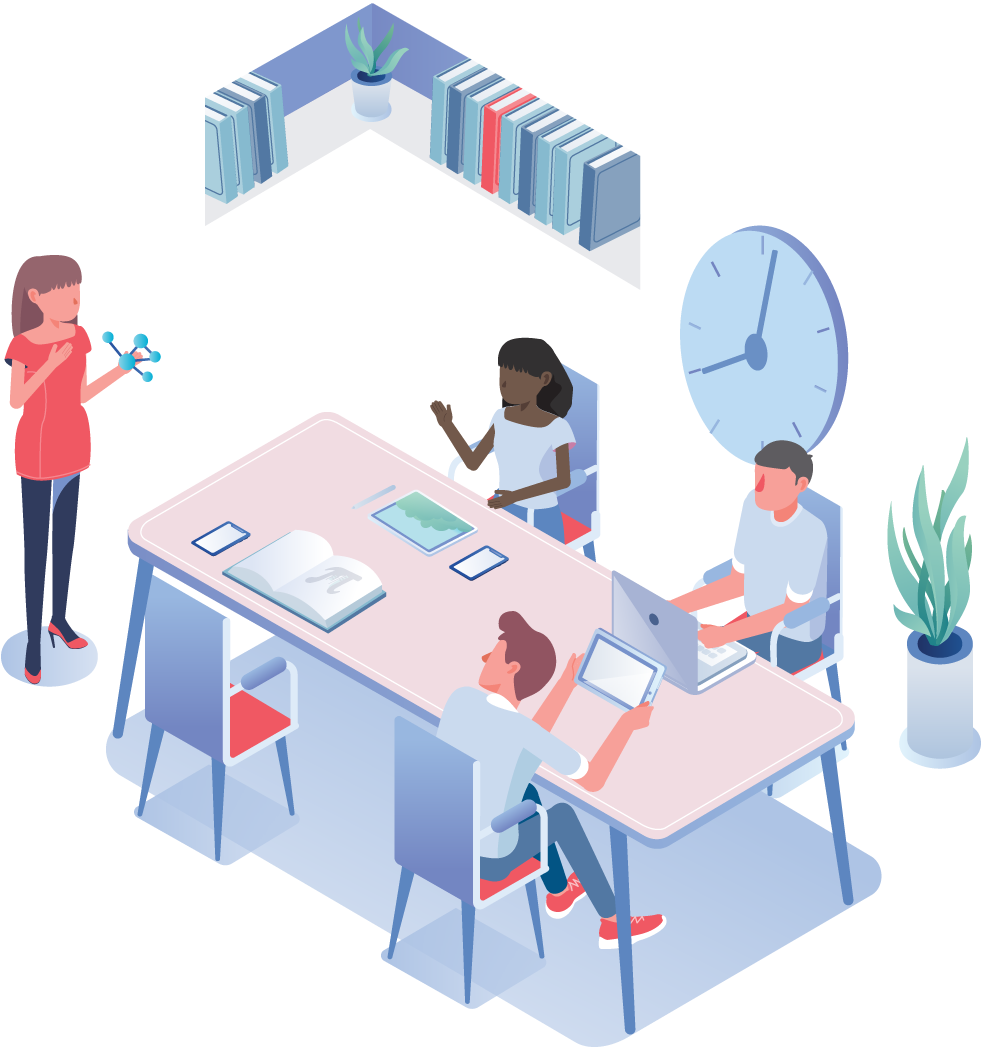Have you ever heard the phrase “study smarter, not harder”, but had no clue what it meant or how to adapt it to your own life?
There are hundreds of study skills out there, but it can be difficult to find the best study habits for you. Studying smarter means taking the time to study effectively so that you will remember and retain the material, rather than repeatedly cramming for tests and forgetting everything the moment you sit down at your desk. The right study habits will help you succeed not only in school now, but also further down the road in your career and in life.
So, how do you find the right study habits and skills that work best for you?
Study habits that work well for other students may not work the same for you. That’s okay! People have different ways of learning and studying, so it’s all about finding the right style. Here are some things to consider when finding the right study habits and skills for you.
A. Learning Style
By no means do study habits need to be influenced by learning styles, but it can be interesting to know which styles work for you to see how you usually learn and retain information. This can be a good place to start if you want to find out more about the specific way you learn.
There are 7 types of learning styles:
1) Visual learners
Visual learners prefer to process information through visual aids such as diagrams, charts, graphs, and videos. They learn best when they can see and observe information.
2) Auditory learners
Auditory learners learn best through listening and verbal communication. They benefit from lectures, discussions, and audio recordings.
3) Kinesthetic learners
Kinesthetic learners, also known as tactile learners, learn through physical activity and hands-on experiences. They prefer to learn by doing and engaging in practical tasks.
4) Reading/Writing learners
Reading/writing learners have a preference for written materials. They excel in traditional learning environments that involve reading textbooks, taking notes, and writing essays.
5) Logical/Mathematical learners
Logical learners have a natural inclination towards reasoning, logic, and critical thinking. They excel in subjects such as mathematics, science, and problem-solving.
6) Social learners
Social learners thrive in group settings and learn best through interactions with others. They enjoy collaborative activities, discussions, and group projects.
7) Solitary learners
Solitary learners, also known as intrapersonal learners, prefer to study and work alone. They excel in independent learning environments and benefit from self-reflection and self-paced learning.
You can find out more about these learning styles here.
Many people have multiple learning styles that work for them, or they may have certain styles that work for certain subjects. Some study techniques can be better suited for certain learning styles. For example, social learners may work better in study groups, while solitary learners may study better by themselves. However, study techniques are not exclusive to specific learning styles. It’s good to try out a wide variety of different learning/study techniques to see what works for you, rather than sticking yourself in a box.
B. Location
Location is incredibly important for studying. You want to set up a space where you know you can focus and get your work done. Do you study better at home or at the library? At the dining room table or in the living room?
If possible, make sure you are working at a desk or table. This way you can have all your materials in front of you and can be focused on your work. Studying in bed or slouched on the couch takes away from your ability to focus and can get you into a lazy mindset. Try to study in the same location as much as you can- this will help your brain get into a good study routine.
Make sure you’re organized before you start! Get all the necessary notes, readings, etc. ready for the assignment. Clear the area of clutter. Turn off your phone or put it on airplane mode. Make sure you only have what you need in front of you and nothing else. This will help your brain focus on the task without getting distracted.
C. Atmosphere
Along with location, consider the atmosphere you prefer when studying. Do you study better listening to music or is that distracting? If so, what type of music? Do you prefer complete silence or do you like hearing the hustle-and-bustle of a coffee shop or library? If you like studying with others, do you prefer studying just with a friend or in a big group? Or is it easier to study just by yourself? None of these are wrong answers!
Similar to the learning styles, you may have different answers to these questions depending on the assignment or class you’re studying for. Maybe in a math class you need to be able to talk through the questions with a classmate, but for English, you write essays better on your own. If you do prefer studying and working alone, it’s still helpful to have someone else either quiz you for a test or proofread your essay. Similarly, if you prefer only working in groups, it’s also good to regularly set aside time to go over your notes by yourself.

D. Techniques
There are lists and lists of different study tips and techniques out there. Try out as many as you can! This is the best way you can find the ones that help you learn and retain information.
Here are some of my favorites that helped me in school.
1) Rewriting notes
This one is very easy and very effective! Rewriting notes has been proven to help your brain better understand and retain information. Also, it makes the notes more legible and easier to read for you when you are studying. Rewriting your notes right after class is best because the information is still fresh in your brain, and you will be able to expand on parts that you might’ve had to skip over in class.
2) Color-coding
Color-coding your notes helps organize the information better for your brain and helps with memory recall. This is especially helpful for test study guides! When you are struggling to remember the answer to a question on the test, your brain will remember the color you used to write the answer on the study guide and be able to recall the information more quickly. Be sure to use the same colors on the study guide and remember what each of the colors mean. For example, you might use red for boxed final answers and green for the section titles of main concepts.
3) Flashcards
A tried and true method, flashcards have been proven to help with memory recall. Quizzing yourself throughout studying helps you keep track of your own progress, so you know which topics you need to work on more. I also recommend color-coding flashcards or buying a multi-color pack to further help with memory recall.
You can find more study tips and techniques here.
Starting out these study habits at the beginning of the school year or start of the semester is the best way to make sure you stick to them. However, you can start to develop better habits at any time! Work on developing a consistent routine with better study habits and you will be on your way to studying smarter in no time.
E. Adapting
As you progress in your academic journey, it’s crucial to regularly evaluate and adjust your study habits to ensure that they remain effective and aligned with your evolving needs.
Take the time to assess your current study habits and their effectiveness. Ask yourself questions such as: Am I able to concentrate and retain information well? Are there any specific study techniques that work better for me? Do I feel overwhelmed or stressed during my study sessions? By gaining a clear understanding of your strengths and areas for improvement, you can make informed decisions about how to adapt your study habits.
Regularly assess your academic performance, evaluate your study habits, and reflect on the outcomes. Are you achieving the desired results? Are there any areas where you can make further improvements?
Sometimes, small tweaks and adjustments can make a significant difference. For example, if you find that you tend to lose focus after a certain period of time, you can experiment with incorporating short breaks into your study sessions. If you’re struggling to grasp complex concepts, you can explore alternative resources, such as online tutorials or study groups, to supplement your learning.
Finding the Best Study Habits For You
Discovering the best study habits for yourself can greatly enhance your academic journey. By assessing your learning style, creating a productive study environment, and experimenting with different techniques, you can make the most of your study sessions.
Remember that finding the ideal study habits is a continuous process of adaptation and refinement. Be open to change, stay motivated, and remain committed to continuous improvement. The right study habits will help you maximize your understanding and succeed in school.
SEE ALSO: Memory Recall & Retention: Practical Strategies for Students
Sources:
Study Habits of Highly Effective Students (educationcorner.com)
Studying 101: Study Smarter Not Harder – Learning Center (unc.edu)
22 Study Habits That Guarantee Good Grades (daniel-wong.com)
25 Scientifically Proven Tips for Effective Studying [2023 Edition] (mydegreeguide.com)
Need more personalized recommendations?
The above tips and recommendations are broad strokes on study tips. If you have further questions, feel free to contact us for a personal consultation. We look forward to helping you.
About MathTowne
MathTowne is a locally-based tutoring resource. We are here to support students through the key phases of their academic journey: middle school, the transition to high school, all four years of high school, and college preparation. Our staff has years of experience in creating personalized lesson plans for all of our students.

Yuki is a skilled educator with a degree in Chemistry from Carnegie Mellon University. She discovered her passion for teaching math after tutoring at an after-school program. With five years of tutoring experience, Yuki creates a supportive learning environment for students. Outside of tutoring, she enjoys trying new cuisines and playing piano.
